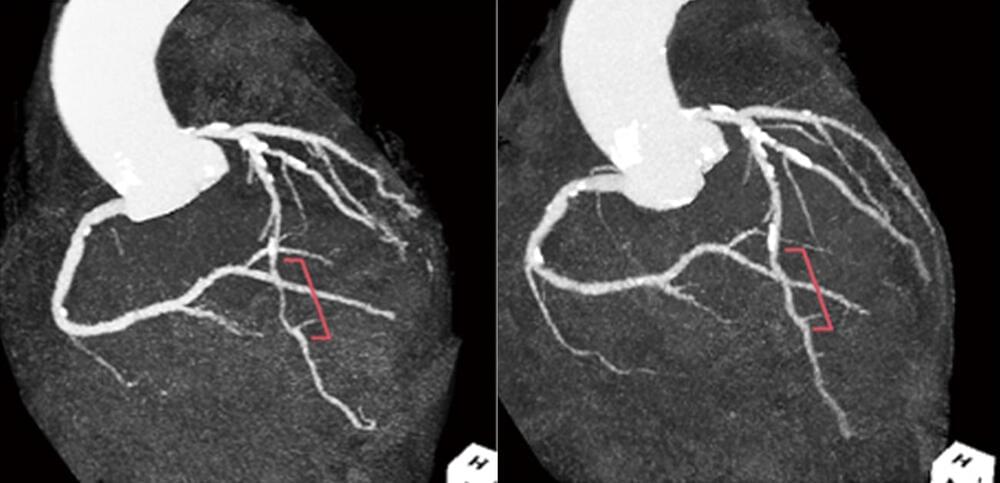Some of the moons hadn’t been spotted yet because they are tiny, measuring less than 1 mile in diameter. Astronomers discovered 12 new moons orbiting Jupiter, meaning the total number of moons we know to be orbiting the gas giant now stands at 92.



He has never been on a leash and eats only human food. Bobi, aged 30 years and 268 days, was crowned as the world’s oldest living dog by the Guinness World Records last week. Bobi also holds the enviable record of being officially the oldest dog to have lived on the planet.
Bobi, a 30-year-old Rafeiro do Alentejo from Portugal, is now the oldest verified dog ever.
In case you haven’t heard, artificial intelligence is the hot new thing.
If anything, this breakneck pace is only accelerating. Five years from now, the field of AI will look very different than it does today. Methods that are currently considered cutting-edge will have become outdated; methods that today are nascent or on the fringes will be mainstream.
What will the next generation of artificial intelligence look like? Which novel AI approaches will unlock currently unimaginable possibilities in technology and business?
My previous column covered three emerging areas within AI that are poised to redefine the field—and society—in the years ahead. This article will cover three more.

“This is just the first step on the AI front…as [the] AI arms race takes place among Big Tech.”
Right on the heels of Google announcing Artificial Intelligence chatbot Bard, Microsoft has beefed up its search engine Bing with the latest AI sensation, OpenAI’s ChatGPT.
“Search has remained the same since the last major inflection,” Microsoft corporate VP Yusuf Mehdi said at the event on Tuesday announcing the update, adding that “the user experience is the same as 20 years ago.”
For almost two decades, Google’s search engine market has had a highly successful run, facing almost zero competition from rivals. That could all change with the new upgraded Bing and Edge browser that has integrated the same technology created by the developers of ChatGPT.
Unlike Bard, which is currently used only by trusted testers\.
Microsoft has launched an all new, AI-powered Bing search engine and Edge browser, available to all in preview now at Bing.com.


There should be some vaccine against common cold because globally millions of people suffer s due to this disease.
Respiratory syncytial virus (RSV) is the most common pathogen responsible for lower respiratory diseases in children. So far, there is no effective treatment or preventative vaccine available for RSV infection, although ribavirin and dexamethasone are commonly prescribed. Resveratrol has been shown to inhibit the replication of several other viruses, thus the effect of resveratrol on RSV-induced inflammatory mediators in 9HTEo cell cultures was evaluated, and possible mechanisms of action were explored and compared with dexamethasone and ribavirin. Incubation with resveratrol resulted in decreased IL-6 production and partial inhibition of RSV replication. Resveratrol treatment also inhibited virus-induced TIR-domain-containing adapter-inducing interferon-β (TRIF) and TANK binding kinase 1 (TBK1) protein expression. These data demonstrate the ability of resveratrol to inhibit cytokine production by RSV in airway epithelial cells, indicating that it might be a therapeutic agent with both anti-inflammatory and antiviral potential for the treatment of RSV infection.
Game on!
Google PR:
Introducing Bard.
It’s a really exciting time to be working on these technologies as we translate deep research and breakthroughs into products that truly help people. That’s the journey we’ve been on with large language models. Two years ago we unveiled next-generation language and conversation capabilities powered by our Language Model for Dialogue Applications (or LaMDA for short).
We’ve been working on an experimental conversational AI service, powered by LaMDA, that we’re calling Bard. And today, we’re taking another step forward by opening it up to trusted testers ahead of making it more widely available to the public in the coming weeks.
Bard seeks to combine the breadth of the world’s knowledge with the power, intelligence and creativity of our large language models. It draws on information from the web to provide fresh, high-quality responses. Bard can be an outlet for creativity, and a launchpad for curiosity, helping you to explain new discoveries from NASA’s James Webb Space Telescope to a 9-year-old, or learn more about the best strikers in football right now, and then get drills to build your skills.
On September 24, 2023, the sample return capsule will detach from the spacecraft, perform an entry, descent and landing sequence, and touch down in the Utah desert.
Thanks to our contribution to the mission, Canada will receive a portion of the asteroid material!

When we were little, our parents told us to take our vitamins so we could grow big and strong. Now, researchers from Japan find that one particular supplement may even fix a broken heart.
In a study that published recently in European Heart Journal, researchers from Osaka University have revealed that a dietary supplement can dramatically reverse the signs of heart disease in a subset of patients.
Coronary artery disease (CAD), which involves narrowing or even closing of the arteries of the heart and often leads to heart attack, is a major cause of death worldwide. Despite the existence of treatments such as cholesterol-lowering drugs and drug-eluting stents—a new stent technology for local drug delivery—death from this condition is still common, and some patients appear to be resistant to treatment.
It turns out that it is now pretty standard to have no external stitches for spaying, and in fact, if I had to do it over again, I would have picked one port keyhole surgery which would have been even easier to heal from. (That would have required switching vets.) So for only $400, Kaia not only had advanced surgery with no outside stitches, but she was made into a cyborg with a microchip being implanted. Pretty impressive!
This is just one example of us rushing headlong into a science fiction-type future. The biggest such example being ChatGPT which feels way more intelligent than previous chatbots. It used to be that Ray Kurzweil would say that we would have AGI in 2029 and everyone else predicted dates such as 2070 or never. Now many people pick 2029 and I could definitely see the tech behind ChatGPT being part of the recipe for AGI. For me, the first example that AGI was coming, was Content-Aware Fill being added to Photoshop. That feature allows you to erase a person from a beach scene in one quick step. Very impressive!
One more example of tech advancing is that a few years ago my right eye’s retina partially detached. My doctor did surgery with cryotherapy in his office, and inserted a sulfur hexafluoride bubble to stabilize everything. He followed up the next day with laser therapy, again in his office. No hospital needed. Eye fixed!
Video is of our killer guard dog Kaia on patrol. Watch out world!